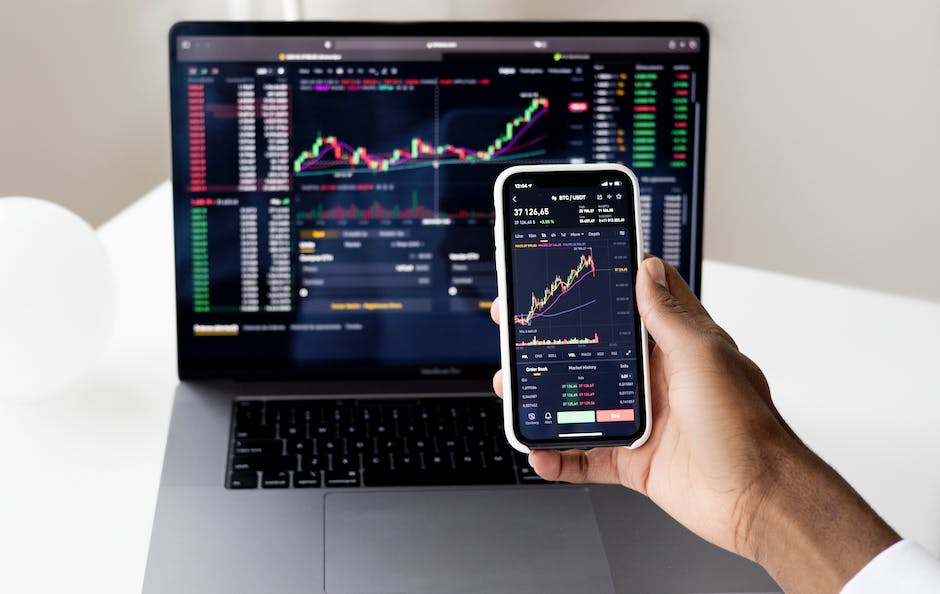Table of Contents
Navigating the new era of global trade with Arab leadership.
Introduction
“The Changing Landscape of Global Trade: An Arab Leadership Perspective” explores the evolving dynamics and challenges faced by Arab leaders in the context of global trade. This perspective delves into the shifting economic, political, and technological forces that have reshaped the global trade landscape, and how Arab leaders navigate these changes to ensure their countries’ economic growth and prosperity. By examining the unique challenges and opportunities faced by Arab nations, this perspective sheds light on the strategies and policies adopted by Arab leaders to adapt and thrive in an increasingly interconnected and competitive global trade environment.
The Impact of Technological Advancements on Global Trade

The Impact of Technological Advancements on Global Trade
In today’s interconnected world, technological advancements have revolutionized the way global trade is conducted. From the advent of the internet to the rise of artificial intelligence, these advancements have had a profound impact on every aspect of the trade process. Arab leaders have recognized the importance of embracing these changes and have been at the forefront of harnessing technology to drive economic growth and enhance their countries’ positions in the global trade landscape.
One of the most significant ways technology has transformed global trade is through the digitization of trade processes. Traditionally, trade involved a multitude of paperwork, lengthy customs procedures, and physical transportation of goods. However, with the introduction of electronic documentation and online platforms, these processes have become streamlined and more efficient. Arab countries have been quick to adopt these digital solutions, leading to reduced costs, increased transparency, and faster delivery times.
Furthermore, the rise of e-commerce has opened up new opportunities for businesses to engage in international trade. Online marketplaces have made it easier for small and medium-sized enterprises (SMEs) to access global markets and compete with larger corporations. Arab leaders have recognized the potential of e-commerce in driving economic growth and have implemented policies to support the development of digital infrastructure and promote entrepreneurship in the sector.
Another area where technology has had a significant impact on global trade is logistics and supply chain management. The use of advanced tracking systems, such as radio frequency identification (RFID) tags, has enabled businesses to have real-time visibility of their goods throughout the entire supply chain. This has not only improved efficiency but also reduced the risk of theft and counterfeiting. Arab countries have invested heavily in upgrading their logistics infrastructure, including the development of smart ports and the implementation of blockchain technology to enhance supply chain security.
Moreover, the emergence of big data analytics has revolutionized market research and consumer behavior analysis. By analyzing vast amounts of data, businesses can gain valuable insights into customer preferences and tailor their products and services accordingly. Arab leaders have recognized the importance of data-driven decision-making and have invested in building data centers and promoting data analytics skills to support businesses in their global trade endeavors.
Artificial intelligence (AI) is another technological advancement that has the potential to reshape global trade. AI-powered chatbots and virtual assistants have become increasingly common in customer service, providing businesses with round-the-clock support and enhancing the customer experience. Arab countries have embraced AI technology and are investing in research and development to harness its full potential in various sectors, including trade.
However, it is important to acknowledge that technological advancements also present challenges. The rapid pace of innovation means that businesses and governments must constantly adapt to keep up with the changing landscape. Additionally, concerns over data privacy and cybersecurity have become more prominent as trade becomes increasingly digitalized. Arab leaders are aware of these challenges and are working towards creating robust regulatory frameworks to address these issues and ensure the safe and secure conduct of global trade.
In conclusion, technological advancements have had a profound impact on global trade, transforming traditional processes and opening up new opportunities. Arab leaders have recognized the importance of embracing these changes and have been proactive in harnessing technology to drive economic growth and enhance their countries’ positions in the global trade landscape. By embracing digitization, e-commerce, advanced logistics, big data analytics, and AI, Arab countries are well-positioned to thrive in the changing landscape of global trade.
The Role of Arab Leadership in Shaping Global Trade Policies
The Role of Arab Leadership in Shaping Global Trade Policies
Global trade has undergone significant changes in recent years, with the rise of new economic powers and the increasing interconnectedness of markets. In this changing landscape, Arab leadership has played a crucial role in shaping global trade policies. Arab countries have recognized the importance of trade as a driver of economic growth and have actively pursued policies to enhance their participation in the global economy.
One key aspect of Arab leadership’s role in shaping global trade policies is the promotion of regional integration. Arab countries have recognized that by working together, they can leverage their collective strengths and enhance their competitiveness in the global market. The Arab League, an organization that brings together Arab countries, has been instrumental in fostering regional cooperation and integration. Through initiatives such as the Arab Free Trade Area and the Arab Customs Union, Arab countries have sought to reduce trade barriers and promote the free flow of goods and services within the region.
Arab leadership has also been actively engaged in multilateral trade negotiations. Arab countries have recognized the importance of participating in global trade forums such as the World Trade Organization (WTO) and have actively contributed to the shaping of global trade rules. Arab leaders have advocated for fair and equitable trade practices, and have sought to ensure that the interests of developing countries, including Arab nations, are taken into account in global trade negotiations.
Furthermore, Arab leadership has recognized the importance of diversifying their economies and reducing their dependence on oil exports. Arab countries have embarked on ambitious economic diversification programs, aimed at developing new sectors and industries that can contribute to their economic growth. These efforts have been supported by policies to attract foreign direct investment and promote innovation and entrepreneurship. By diversifying their economies, Arab countries are not only reducing their vulnerability to fluctuations in oil prices but also enhancing their competitiveness in the global market.
Arab leadership has also recognized the importance of investing in infrastructure to facilitate trade. Arab countries have made significant investments in ports, airports, and transportation networks, with the aim of improving connectivity and reducing trade costs. These infrastructure investments have not only enhanced the efficiency of Arab countries’ trade operations but have also positioned them as important hubs for global trade. Arab leaders have recognized that by investing in infrastructure, they can attract foreign investment and promote trade and economic growth.
In conclusion, Arab leadership has played a crucial role in shaping global trade policies. Arab countries have recognized the importance of trade as a driver of economic growth and have actively pursued policies to enhance their participation in the global economy. Through initiatives such as regional integration, active engagement in multilateral trade negotiations, economic diversification, and infrastructure investments, Arab leaders have sought to position their countries as important players in the global trade arena. As the global trade landscape continues to evolve, Arab leadership will continue to play a vital role in shaping global trade policies and ensuring that the interests of Arab countries are taken into account.
The Influence of Political and Economic Factors on Global Trade
The landscape of global trade has undergone significant changes in recent years, with political and economic factors playing a crucial role in shaping the direction and dynamics of international commerce. Arab leaders have been closely observing these developments and have a unique perspective on the influence of these factors on global trade.
Political factors have always had a profound impact on global trade. The Arab world, in particular, has experienced political upheavals and transitions that have had far-reaching consequences for trade. The Arab Spring, for instance, brought about significant political changes in several countries, leading to both opportunities and challenges for trade. The transition from authoritarian regimes to more democratic systems has created a more open and transparent environment for trade, but it has also resulted in periods of instability and uncertainty that can hinder trade flows.
Economic factors, on the other hand, have been instrumental in shaping the global trade landscape. Arab leaders recognize the importance of economic diversification and the need to reduce dependence on oil revenues. This has led to a renewed focus on sectors such as tourism, manufacturing, and services, which has in turn influenced the patterns of global trade. Arab countries are increasingly looking to expand their trade relationships beyond traditional partners and explore new markets in Asia, Africa, and Latin America.
The rise of protectionism and trade disputes between major economies has also had a significant impact on global trade. Arab leaders have closely followed these developments and have expressed concerns about the potential negative consequences for their own economies. They understand that a more fragmented and protectionist global trade system can undermine their efforts to diversify their economies and reduce dependence on oil. Arab leaders have therefore been actively engaging in multilateral forums such as the World Trade Organization to advocate for a more open and rules-based trading system.
Another important factor that Arab leaders consider is the role of technology in shaping global trade. The digital revolution has transformed the way goods and services are produced, traded, and consumed. E-commerce, for instance, has opened up new opportunities for small and medium-sized enterprises to participate in global trade. Arab leaders recognize the potential of technology to drive economic growth and job creation, and they have been investing in digital infrastructure and promoting innovation and entrepreneurship.
In conclusion, the changing landscape of global trade is influenced by a complex interplay of political and economic factors. Arab leaders have a unique perspective on these factors and understand the importance of navigating these challenges to ensure sustainable economic growth and development. By actively engaging in multilateral forums, diversifying their economies, and embracing technology, Arab countries are positioning themselves to adapt to the evolving global trade environment and seize new opportunities.
Exploring Opportunities and Challenges in the Arab World’s Trade Relations
The Arab world has long been a key player in global trade, with its strategic location connecting Asia, Europe, and Africa. Over the years, the landscape of global trade has undergone significant changes, presenting both opportunities and challenges for Arab leaders. In this article, we will explore the evolving trade relations in the Arab world and the implications for its leadership.
One of the key opportunities for Arab leaders lies in the diversification of trade partners. Traditionally, the Arab world has relied heavily on trade with Europe and the United States. However, with the rise of emerging economies in Asia, there is a growing potential for increased trade with countries like China and India. Arab leaders recognize the importance of tapping into these markets to expand their trade horizons and reduce dependence on traditional partners.
Another opportunity for Arab leaders is the advancement of technology and digitalization. The digital revolution has transformed the way businesses operate and trade globally. Arab leaders are increasingly investing in digital infrastructure and e-commerce platforms to facilitate cross-border trade. This not only enhances efficiency but also opens up new avenues for small and medium-sized enterprises (SMEs) to participate in global trade. By embracing technology, Arab leaders can position their countries as hubs for digital trade and innovation.
However, along with opportunities, Arab leaders also face several challenges in navigating the changing landscape of global trade. One of the major challenges is the increasing protectionism and trade tensions between major economies. The Arab world, being heavily reliant on international trade, is vulnerable to the ripple effects of trade disputes. Arab leaders must carefully monitor these developments and adopt strategies to mitigate the impact on their economies.
Another challenge for Arab leaders is the need to address structural issues within their economies. Many Arab countries heavily rely on oil exports, making them susceptible to fluctuations in global oil prices. To reduce this vulnerability, Arab leaders are focusing on economic diversification and promoting non-oil sectors such as tourism, manufacturing, and services. This requires significant investments in infrastructure, education, and innovation to create a conducive environment for business growth.
Furthermore, Arab leaders must also address the issue of regional conflicts and political instability. These factors not only disrupt trade flows but also deter foreign investors. Arab leaders are increasingly working towards regional integration and stability to create a favorable environment for trade and investment. Initiatives such as the Arab Free Trade Agreement and the Gulf Cooperation Council aim to promote intra-regional trade and cooperation.
In conclusion, the changing landscape of global trade presents both opportunities and challenges for Arab leaders. By diversifying trade partners, embracing technology, and addressing structural issues, Arab leaders can position their countries as key players in the global economy. However, they must also navigate the challenges of protectionism, regional conflicts, and political instability. Through strategic planning and collaboration, Arab leaders can shape the future of global trade and drive economic growth in the Arab world.
Q&A
1. What is “The Changing Landscape of Global Trade: An Arab Leadership Perspective” about?
“The Changing Landscape of Global Trade: An Arab Leadership Perspective” is a book or article that discusses the evolving nature of global trade from the perspective of Arab leaders.
2. Who is the author of “The Changing Landscape of Global Trade: An Arab Leadership Perspective”?
The author of “The Changing Landscape of Global Trade: An Arab Leadership Perspective” is not specified.
3. What are the main themes or topics covered in “The Changing Landscape of Global Trade: An Arab Leadership Perspective”?
The main themes or topics covered in “The Changing Landscape of Global Trade: An Arab Leadership Perspective” are the shifts and challenges in global trade, the role of Arab leaders in navigating these changes, and the implications for Arab countries.
4. Is “The Changing Landscape of Global Trade: An Arab Leadership Perspective” a book or an article?
“The Changing Landscape of Global Trade: An Arab Leadership Perspective” can be either a book or an article, depending on the source.
Conclusion
In conclusion, “The Changing Landscape of Global Trade: An Arab Leadership Perspective” highlights the evolving nature of global trade and its impact on Arab leadership. The book provides valuable insights into the challenges and opportunities faced by Arab leaders in navigating the shifting dynamics of international trade. It emphasizes the need for proactive strategies and effective policies to adapt to the changing global trade environment and ensure sustainable economic growth for Arab nations. Overall, the book serves as a valuable resource for understanding the complexities and implications of global trade from an Arab leadership perspective.




